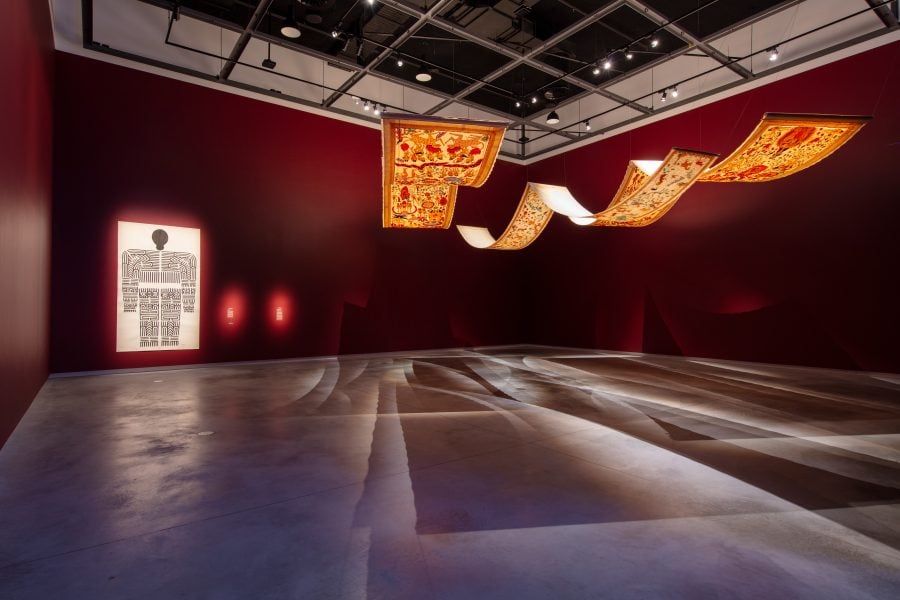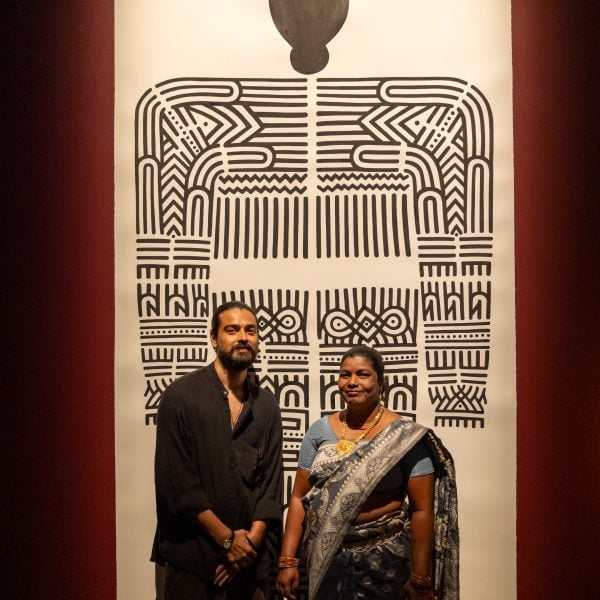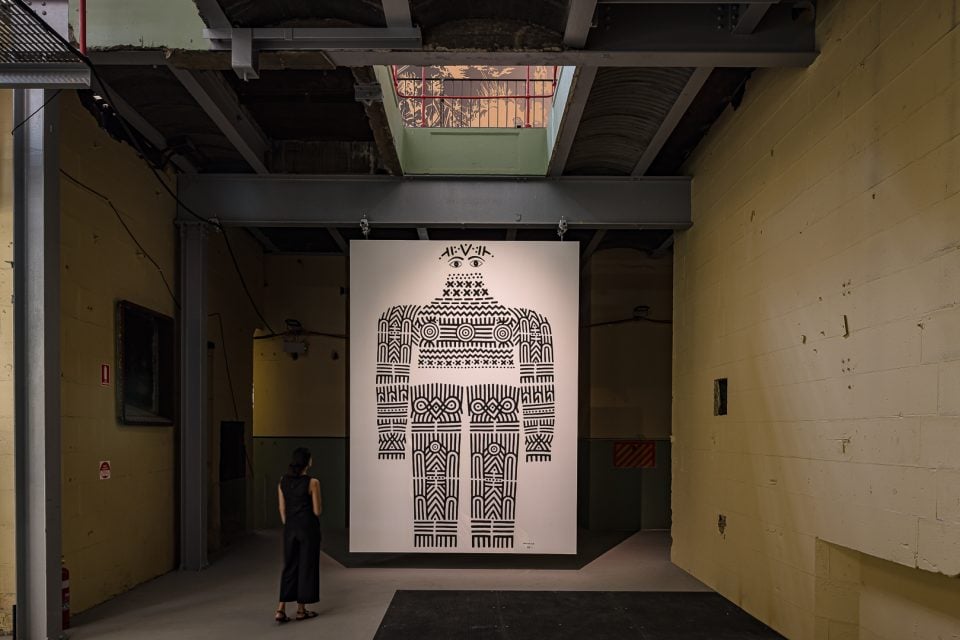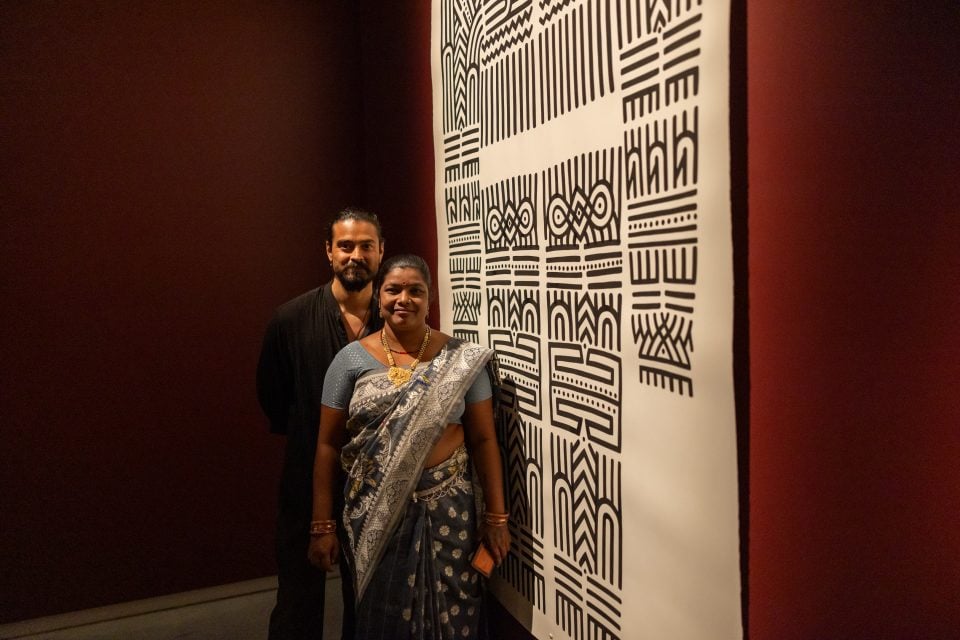Chau Chak Wing Museum
Baiga Godna Indian Tribe, 2024
ink on paper
Commissioned by the Biennale of Sydney and the Fondation Cartier pour l’art contemporain.
Courtesy the Baiga Tribe
Artist Assistant: Amit Arjel-Sharma
White Bay Power Station
Baiga Godna Indian Tribe, 2024
ink on canvas
Commissioned by the Biennale of Sydney and the Fondation Cartier pour l’art contemporain.
Courtesy of the Baiga Tribe
Artist Assistant: Amit Arjel-Sharma
The women of the Baiga community in central India (primarily in the state of Madhya Pradesh) begin receiving tattoos from as young as age nine, starting with their forehead before covering their back, legs and chest. The designs, known as Godna, are a record of life and culture, and are known to hold healing properties when applied correctly.
Among some of the earliest communities in South Asia, in recent times the Baiga people have been displaced by deforestation and government policy. In turn, the tradition of Godna is fading because (unlike jewellery or written records) the history that is encapsulated in these tattoos disappears with those who wear them.
Mangala Bai Maravi, one of the few remaining Badnin (women tattoo artists) in her community, has committed her life to preserving and sharing this tradition. Documenting the symbols and stories of her people, across not only bodies but also canvas and paper, Maravi’s practice can be understood as an act of cultural preservation and healing.



